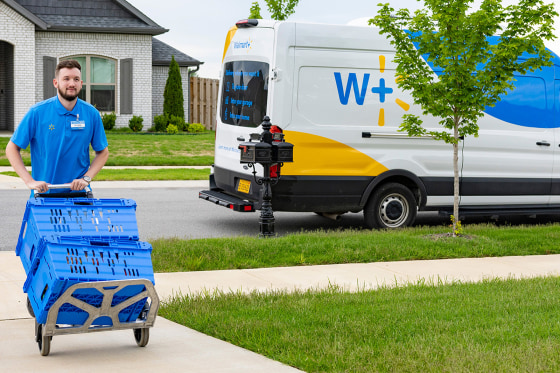
Walmart and a financial technology company are being sued by the Consumer Financial Protection Bureau on charges that they unlawfully coerced drivers into using expensive deposit accounts in order to get paid.
According to the agency, the drivers who were a part of Walmart’s Spark Driver gig-work platform were coerced by Walmart and its vendor, Branch Messenger, into using Branch Messenger’s bank accounts in order to receive their pay. If they refused to utilize this service, they would be fired.
The CFPB further claims that drivers had to go through a convoluted procedure in order to receive their money, and that Walmart and Branch Messenger misled employees about the possibility of same-day access to their earnings.
The CFPB claims that even when drivers were able to access their money, they were either delayed or charged costs if they needed to move the funds into a different account. As a result, workers have paid over $10 million in fees since 2021 in order to transfer their earnings.
According to CFPB Director Rohit Chopra, Walmart exploited over a million delivery people, created accounts illegally, and made misleading promises. Employers cannot compel employees to use accounts that deplete their income with unnecessary fees.
Walmart stated in a statement that the CFPB’s lawsuit contained “exaggerations and blatant misstatements of settled principles of law” in addition to “factual errors.”
“The CFPB never allowed Walmart a fair opportunity to present its case during their rushed investigation,” it stated. “We look forward to vigorously defending the Company before a court that, unlike the CFPB, honors the due process of law.”
Branch Messenger claimed in a statement that the CFPB’s lawsuit “misstates the law and facts” and leaves out details intended to “mask the Bureau’s clear overreach.”
“Despite the company s extensive cooperation with its investigation, the CFPB refused to engage with Branch in any meaningful way about this matter, instead rushing to file a lawsuit,” stated Branch. “This approach makes clear that this litigation has nothing to do with the law or protecting workers and everything to do with the media attention garnered by a lawsuit involving one of the world s biggest retailers.”
As the Biden administration comes to an end and the agency’s future is unknown, the CFPB has released a rush of rules and lawsuits this month. Three of the biggest banks in America were sued by the CFPB last week on charges that they had not done enough to prevent fraud on the online payment system Zelle. The banks have refuted the allegations, as has Zelle’s operator, which was also mentioned in the lawsuit.
Additionally, it filed a lawsuit against Comerica Bank for allegedly injuring customers who were registered in the federal government’s Direct Express assistance delivery program. Comerica is suing the CFPB in response to the claims, which it has disputed.
Additionally, the agency unveiled four distinct regulations, one of which limited bank overdraft fees and was promptly contested by the banking sector.
NBC Newsearlier reportedthe agency had been weighing which rules to finalize before Republicans take control of all three branches of government. The GOP hassignaled plansto defang the agency, while President-elect Donald Trump hasnamed authors of Project 2025which calls for eliminating the CFPB to influential positions.
Multibillionaire Trump donor Elon Musk, whois slated for a high-level cost-cutting role, haspostedon his social platform X: Delete CFPB.
Note: Every piece of content is rigorously reviewed by our team of experienced writers and editors to ensure its accuracy. Our writers use credible sources and adhere to strict fact-checking protocols to verify all claims and data before publication. If an error is identified, we promptly correct it and strive for transparency in all updates, feel free to reach out to us via email. We appreciate your trust and support!
